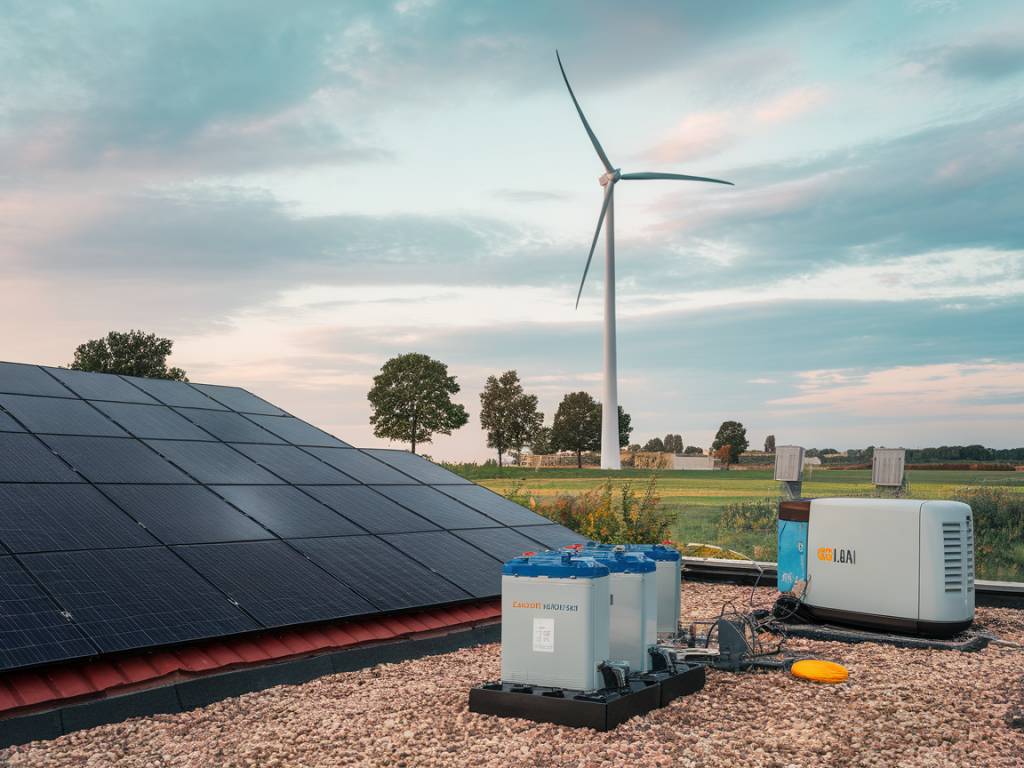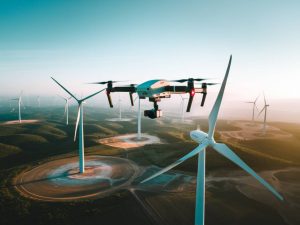Why Off-Grid Solutions Are More Relevant Than Ever
The global energy landscape is evolving at an unprecedented pace. Climate concerns, rising utility costs, and the increasing need for energy independence have prompted a growing interest in off-grid solutions. These systems, which operate independently of centralized power grids, offer a promising alternative for individuals and communities seeking reliable, sustainable, and self-sufficient energy.
What if your lights stayed on even when the grid went down? What if you could fuel your home or business with energy you control? The idea of taking your energy future into your own hands is no longer a pipe dream but a tangible reality, thanks to innovations in renewable technology and energy storage.
What Exactly Are Off-Grid Systems?
Off-grid systems are energy setups that operate without a connection to the traditional power grid. They often consist of:
- Renewable energy sources: Solar panels, wind turbines, or micro-hydropower systems are commonly used to generate electricity.
- Energy storage: Batteries store excess energy produced during peak production periods for use during times when generation is low.
- Backup systems: Diesel generators or biomass systems can serve as fallbacks in case of emergencies.
While early iterations of off-grid systems mostly catered to remote locations, modern advancements have made them appealing to urban dwellers and businesses alike. These systems aren’t just about survival; they’re about thriving sustainably.
Key Advantages of Going Off-Grid
You might wonder, why the buzz about off-grid living? Let’s break it down:
- Energy Independence: Free yourself from fluctuating energy prices, grid outages, or geopolitical tensions that influence energy supply.
- Environmental Benefits: By utilizing renewable sources, off-grid systems reduce greenhouse gas emissions and contribute to combating climate change.
- Cost Savings: While the initial setup cost of solar panels and batteries may seem steep, the long-term savings on electricity bills often outweigh them.
- Empowering Resilience: Off-grid systems provide reliability in emergencies, from natural disasters to unexpected grid failures.
Real-Life Applications of Off-Grid Living
The appeal of off-grid solutions extends far beyond rural cabins in the woods. Here are some notable examples:
Rural Villages: In developing nations, off-grid solar microgrids provide power to remote communities, changing lives by enabling access to education, healthcare, and modern technologies.
Electric Mobility: Picture an off-grid charging station for electric vehicles (EVs), powered entirely by solar panels. Such initiatives are already surfacing in regions where EV adoption is accelerating.
Modern Homes: From sleek urban homes to remote island retreats, off-grid solutions have moved into the mainstream. Pairing minimalism with advanced technology, today’s off-grid living spaces are as stylish as they are functional.
How Can You Transition to Off-Grid Energy?
Taking the leap into off-grid energy isn’t as daunting as it seems. Here are essential steps to get started:
- Evaluate Your Energy Needs: Start by calculating how much energy you’ll need daily, factoring in appliances, lighting, and any other consumption patterns.
- Choose Your Renewable Source: Solar? Wind? A mix of both? Decide on the system that makes the most sense for your location’s climate and geography.
- Invest in Energy Storage: Batteries are key to ensuring a steady energy supply, especially during nighttime or cloudy days. Technologies like lithium-ion and sodium-ion batteries offer promising options.
- Incorporate Energy Efficiency: The less energy you waste, the smaller and more cost-effective your system becomes. Consider LED lighting, energy-efficient appliances, and proper insulation.
Challenges to Keep in Mind
While off-grid solutions provide unparalleled benefits, they also come with challenges:
- Initial Costs: The upfront price tag for installation, components, and setup can be significant. However, federal and regional incentives often soften this blow.
- Maintenance: Keeping solar panels clean, maintaining energy storage systems, and monitoring usage demand ongoing attention.
- Energy Storage Limitation: Batteries are crucial for off-grid systems, yet their capacity and lifecycle currently remain constraints for some adopters.
Despite these hurdles, technological advancements in renewable energy and energy storage are rapidly addressing these issues, making off-grid living more accessible and viable than ever.
Technology Driving the Off-Grid Revolution
The off-grid sector is a hotbed of innovation, driven by cutting-edge technology such as:
- Smart Inverters: These devices seamlessly integrate renewable sources with energy storage and backup systems, optimizing efficiency.
- AI and IoT: Smart energy management systems use AI to predict power needs and optimize consumption in real-time.
- Advances in Batteries: Beyond lithium-ion, we’re seeing breakthroughs in solid-state batteries, sodium-ion alternatives, and even flow battery technology.
These technologies promise to lower costs, enhance efficiency, and make the dream of energy independence a reality for millions worldwide.
Is Off-Grid Living Right for You?
Off-grid solutions aren’t a one-size-fits-all answer. For urban dwellers, they might supplement existing energy needs, whereas for rural residents, they could be a primary energy source. Ask yourself:
- Do you crave independence from traditional energy systems?
- Are you prepared to invest in sustainable living and technology?
- Do challenges like installation and maintenance excite you?
If your answer is « yes » to any of these questions, off-grid living could be your next big adventure.
Closing Thoughts
Off-grid solutions unlock possibilities that were once unimaginable: energy independence, cost savings, and a cleaner planet. Whether you’re an eco-conscious individual, a tech enthusiast, or someone simply tired of power outages, there’s never been a better time to explore life off the grid.
So, why not take charge of your energy future? After all, the power to change the world—quite literally—might just lie in your backyard.






More Stories
How wearable tech is promoting energy-conscious lifestyles
The intersection of blockchain and renewable energy markets
Circular economy and wastewater reuse: a winning combination